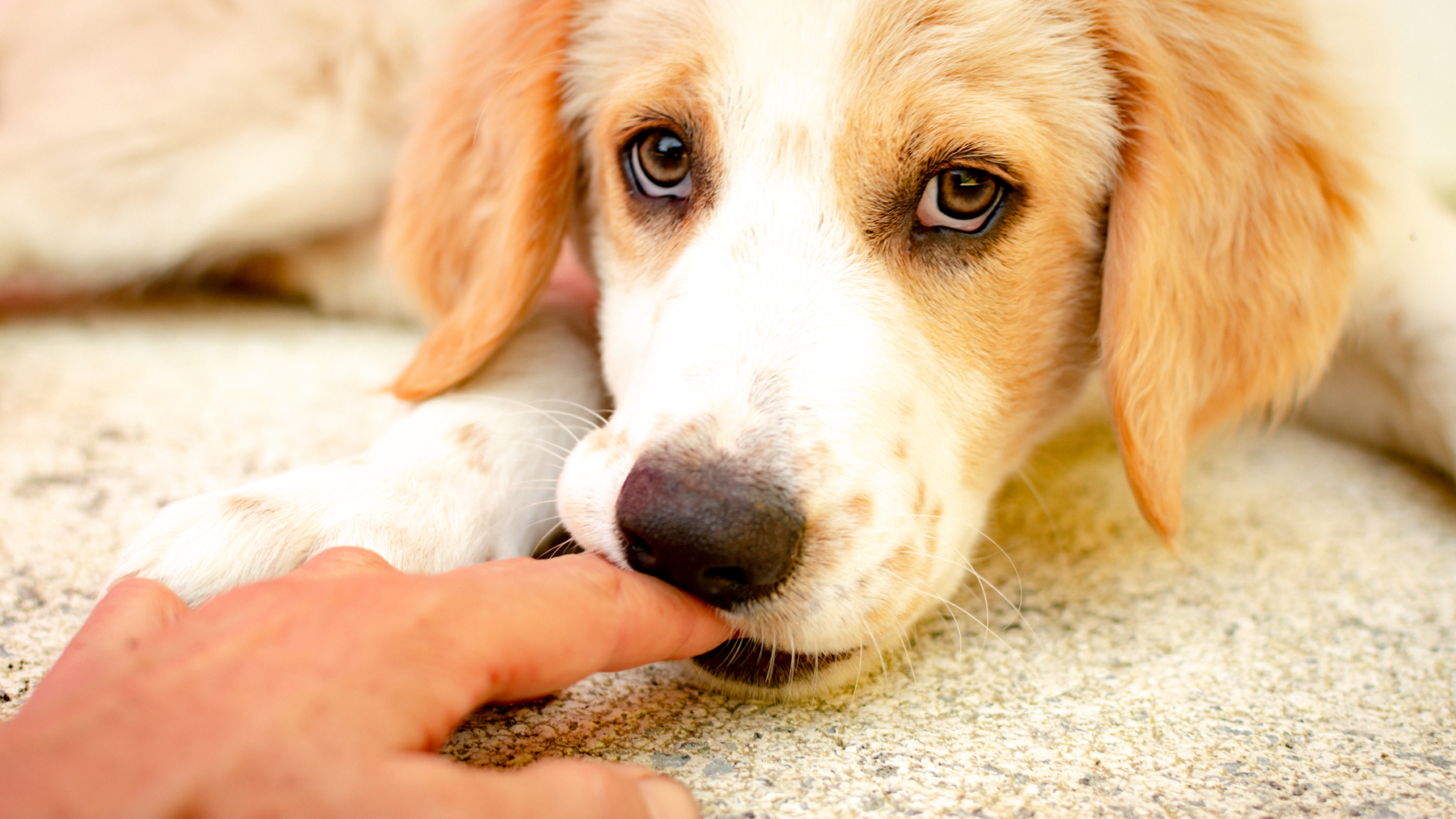Tired of your puppy's biting? This trainer's three tips could make all the difference
If you want to prevent your puppy from nibbling at your hands and instill good behavior then follow this canine expert's tips

Having a new puppy around the house is a whirlwind experience. They're small and needy and have yet to learn a lot. However, as much as you should cherish the puppyhood days you should also be spending time teaching them good behaviors before any bad habits form and linger into adulthood.
One very common yet important misbehavior to address is biting. If your little canine chooses to gnaw and nibble at your hands instead of their best puppy toys then it's a wise idea to teach them otherwise. This doesn't involve punishing your pup but it does require some gentle training approaches.
Thankfully, owner and founder of Pack Leader Dogs, Steve Del Salvio who specializes in dog psychology, has put together some tips on ways to prevent puppy biting and they are extremely easy to practice at home. He walks through them in a video posted to the Pack Leader Dogs Instagram but you can also read through them in full below.
A post shared by Steve Del Savio (@packleaderdogs)
A photo posted by on
Salvio says, "Puppyhood is a critical time in the development of a dog. Their experiences during this time will shape how they see the world for the rest of their life," adding, "Unfortunately, many people waste puppyhood with excessive excitement, tons of petting or touching and allowing the puppy to invade space and so on."
He identifies three teaching methods all puppy owners should adopt if they want to ward off puppy biting for good.
1) Limit the amount of time petting
Salvio says to focus on the amount of time you spend petting your puppy. "I know getting a puppy is so much fun and you wanna touch them and pet them and have them into your space and put your hands all there," he says. But, "the amount of time that you have your hands near them and in their face, all of that is going to give way more time and way more probability and opportunity to that dog to use his mouth on you."
PetsRadar Newsletter
Get the best advice, tips and top tech for your beloved Pets
Instead, he recommends you focus on leadership, obedience and training in puppyhood, and reduce the touching and 'in the face stuff'.
2) Remove hand if nipping
When you do come to pet your puppy and show him or her some love you need to show them that biting is not what gains your attention and affection. Salvio says if his puppy starts biting and nibbling at his hands, he simply removes his hand from the situation. This way the puppy starts to recognize that the moment they bring in their mouth, this is when the affection stops.
3) Use a bone/toy
"You’re petting your dog and you’re touching and they start using their mouth on you," says Salvio, "Bring a bone, bring a toy, bring something else and show them that this is what you should be chewing on or focusing on not so much my hands." Using a toy or one of the best dog treats is a form of redirection. The puppy then learns that this is where they should use their mouth instead of your hands.
Salvio concludes that most of the puppy biting incidents that owners face come from giving their new pups too much affection and it's no wonder puppies go for the hands when they are always in their face. But, showing leadership will help avoid biting and create an excellent bond between the two of you.
If you want more canine content we'll be covering the Cruft's Dog Show 2023 where there will be some stellar dog behavior on display!

With over a year of writing for PetsRadar, Jessica is a seasoned pet writer. She joined the team after writing for the sister site, Fit&Well for a year. Growing up with a lively rescue lurcher kindled her love for animal behavior and care. Jessica holds a journalism degree from Cardiff University and has authored articles for renowned publications, including LiveScience, Runner's World, The Evening Express, and Tom's Guide. Throughout her career in journalism she has forged connections with experts in the field, like behaviorists, trainers, and vets. Through her writing, Jessica aims to empower pet owners with accurate information to enhance their furry companions' lives.
